Black music artists don't receive the recognition they deserve, but their barrier-breaking contributions should not be ignored. Were it not for the sacrifices of black artists, music would not be what it is today. From paving the way for future recording artists, to creating new genres, black artists have made countless contributions to the musical landscape.
In honor of Black Music Month, check out some of the black music luminaries who made history.
Recommended Videos
1. Ella Fitzgerald & Count Basie
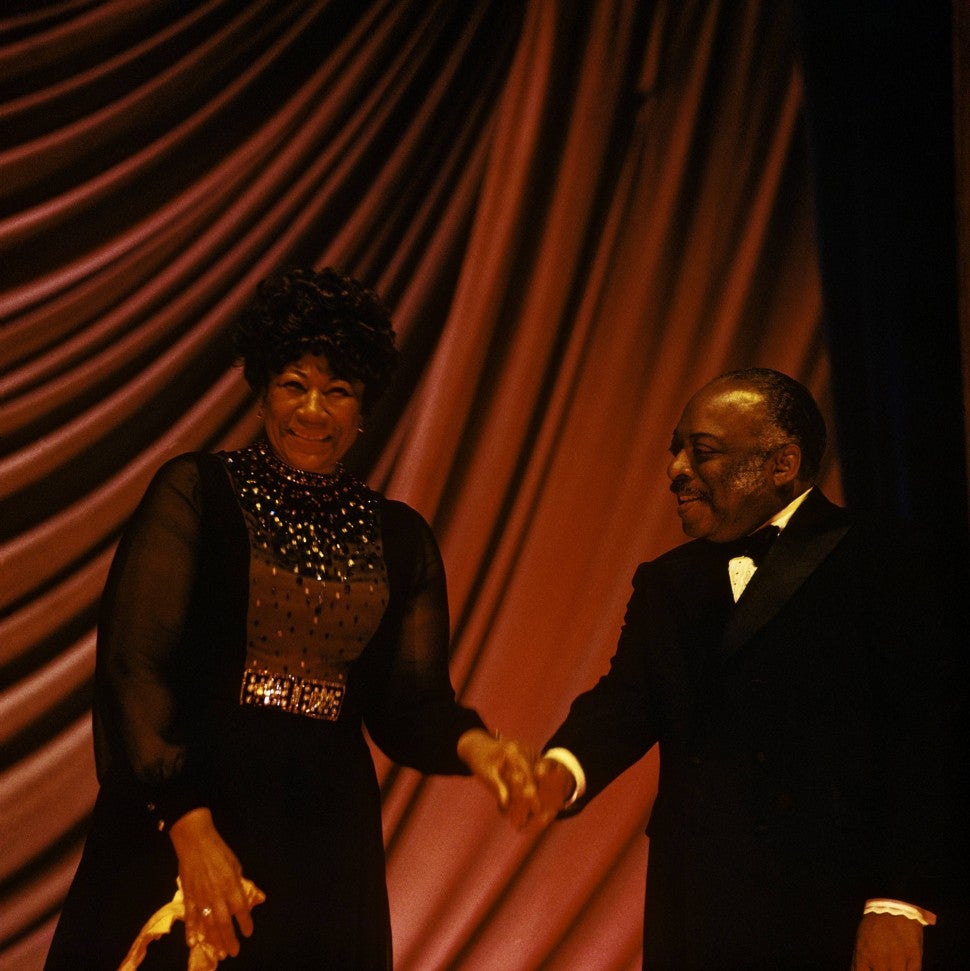
Count Basie and Ella Fitzgerald were among the most prominent jazz greats in history who enjoyed a friendship that lasted decades, and they even made music history together. In 1958, Basie and Fitzgerald became the first black GRAMMY winners at the inaugural ceremony.
Basie won Best Jazz Performance for his album, The Atomic Mr. Basie. Fitzgerald won Best Female Vocal Performance for Ella Fitzgerald Sings the Irving Berlin Song Book, and Best Jazz Vocal Performance for The Duke Ellington Songbook.
2. Nat King Cole
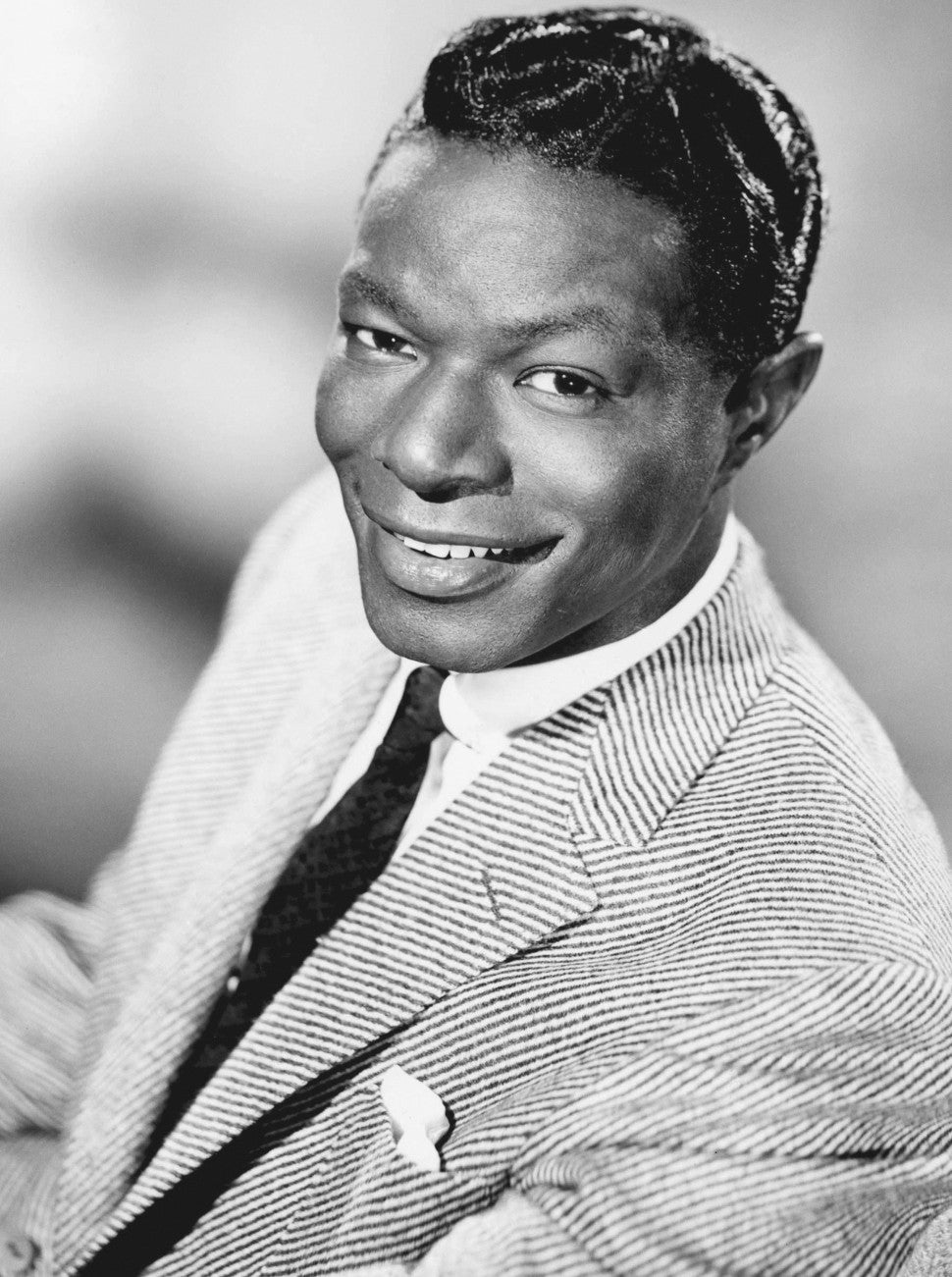
With his unforgettable baritone, hit records, and a royal nickname that became his stage moniker, singer-jazz pianist Nat "King" Cole was a pop star in his own right.
In 1956, Cole became the first black entertainer to host a variety show. Like many black artists of the time period, Cole constantly endured racism, and The Nat King Cole Show was no exemption. Besides Cole being forced to wear makeup to lighten his dark brown skin so that he appealed to white viewers, advertisers refused to sponsor the show, which was subsequently canceled after one season.
3. Sister Rosetta Tharpe
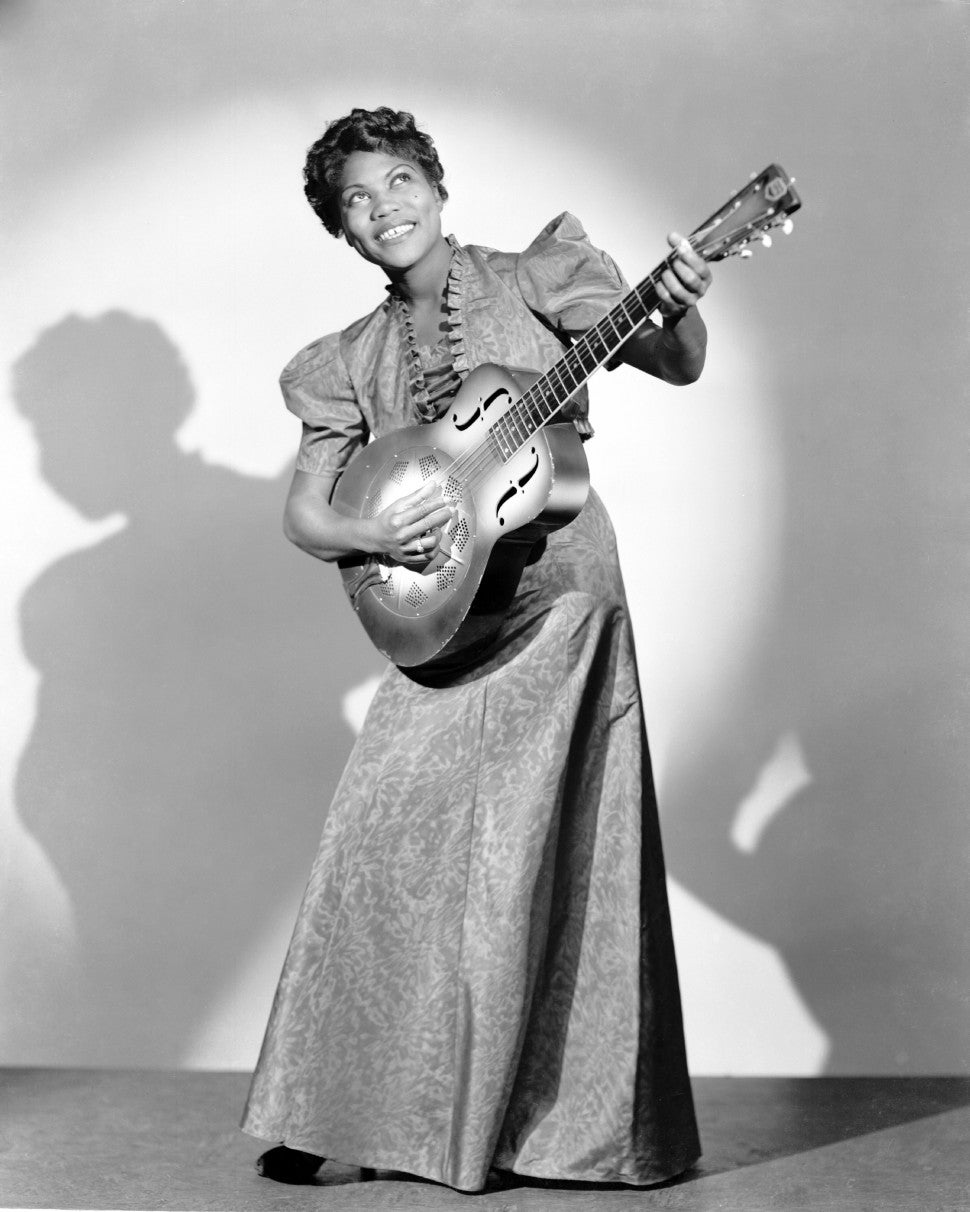
Rock and roll music would not exist without Sister Rosetta Tharpe. Known for her rich vocal blend of gospel and blues, and her signature guitar, the undisputed godmother of rock and roll, who pioneered the genre and laid the groundwork for the likes of Little Richard and Elvis Presley, was born in Arkansas in 1915. A child musical prodigy who performed with her mother in a traveling evangelical tour group at six years old, Tharpe rose to fame in the late 1930s with the release of “Rock Me,” which is credited with bringing gospel music into the mainstream, and the 1939 single, “This Train.”
“Strange Things Happening Every Day,” which Tharpe released in 1945, is lauded as one of the first rock and roll songs, although it was technically categorized as the first gospel record to land on an early incarnation of the Billboard R&B charts.
At the height of her fame, Tharpe toured the world and performed for as many as 25,000 fans at a time. She died in 1978, and was posthumously inducted into the Rock & Roll Hall of Fame in 2018.
4. Aretha Franklin
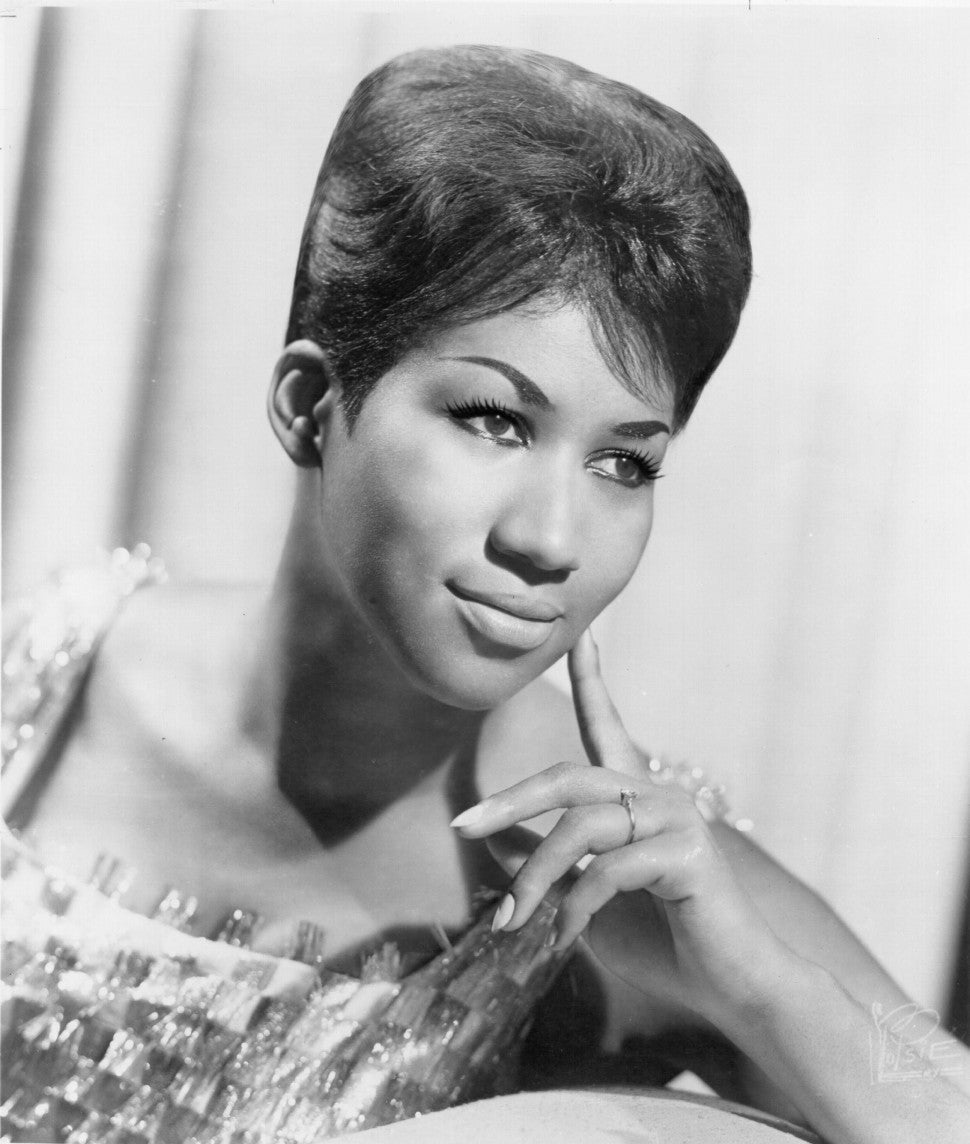
The Queen of Soul reigned supreme with a catalog of timeless classics such as "Respect," "(You Make Me Feel Like) A Natural Woman," and "Say a Little Prayer." There's no ignoring that Aretha Franklin was a certified superstar, but she also made music history in 1987, becoming the first black recording artist and first woman to be inducted into the Rock & Roll Hall of Fame.
5. Ray Charles
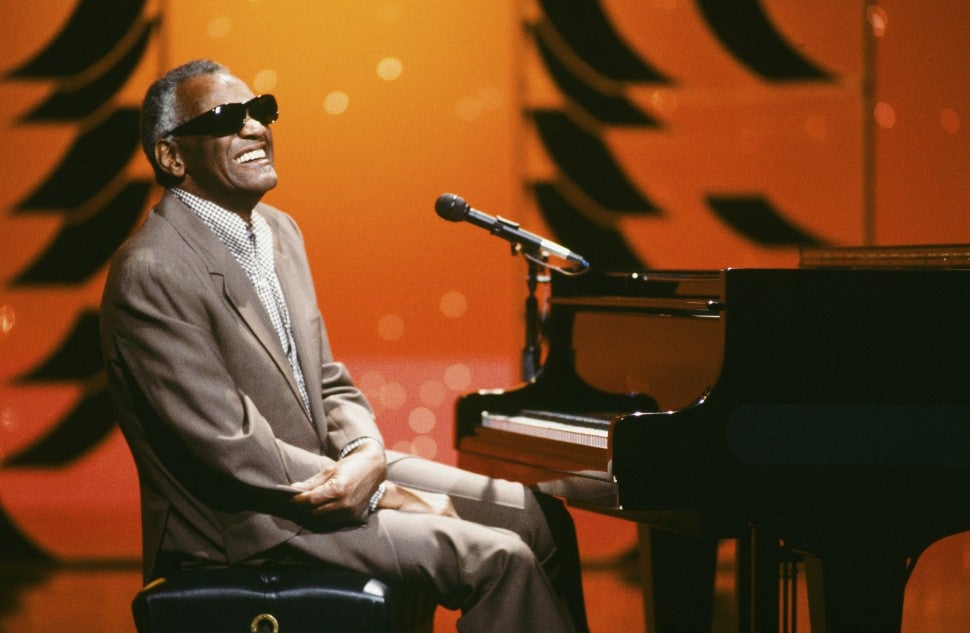
Ray Charles made quite the mark on music, not only for black artists but for disabled musicians. The “Georgia on My Mind” singer became one of a few blind black pianists to reach global stardom. As one of the first black mainstream artists to fuse blues and gospel music, Charles helped open the door for the creation of R&B.
6. Leontyne Price
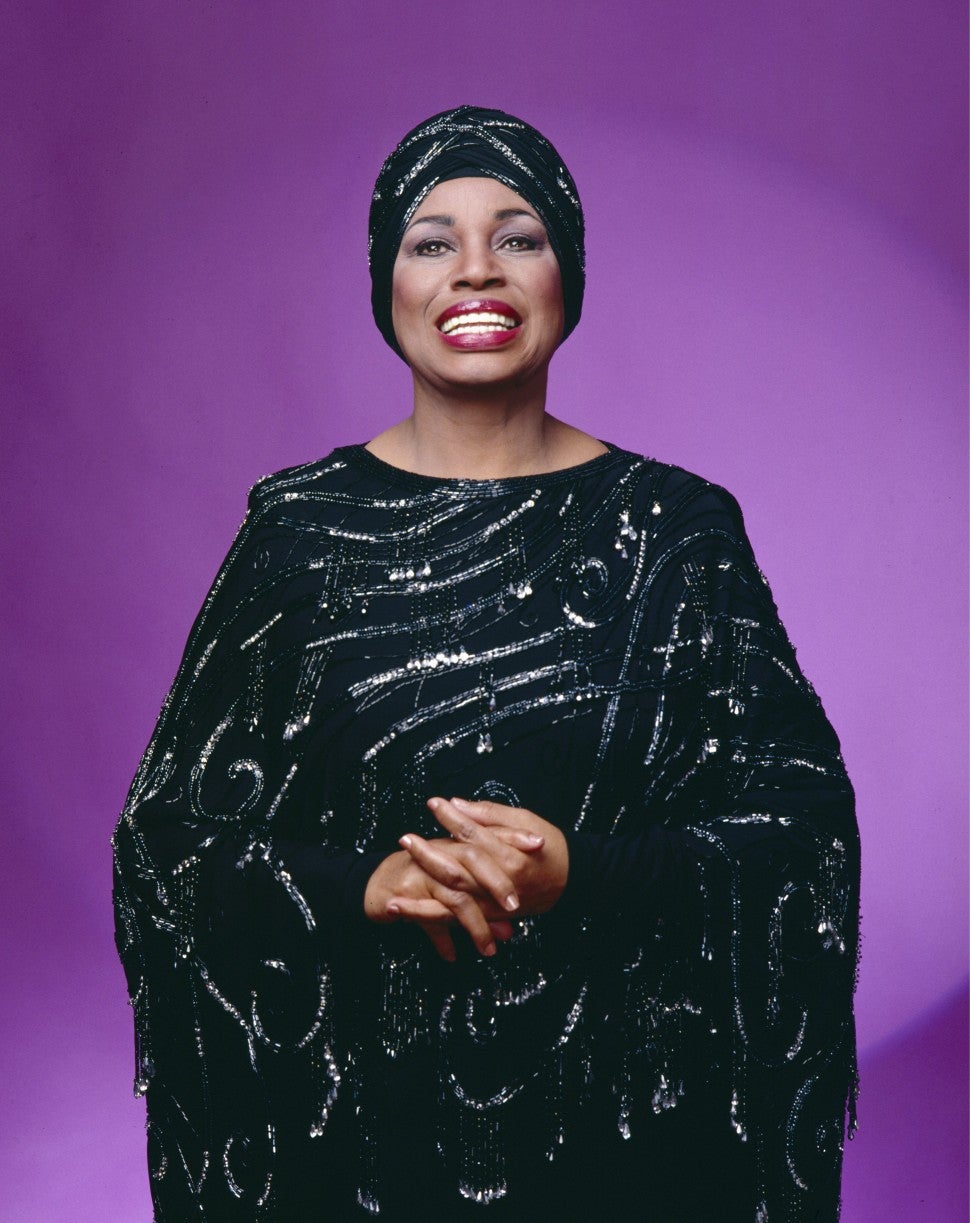
Opera legend Leontyne Price began her career in musical theater in the 1950s. Price debuted on Broadway in Four Saints in Three Acts, before joining a touring production of Porgy & Bess. In 1957, Price debuted at the San Francisco Opera's Les Dialogues des Carmélites and went on to become part of a shortlist of black opera stars. Years after Marion Anderson broke color barriers at the New York's Metropolitan Opera, Price became the Met’s first black prima donna.
7. Charley Pride
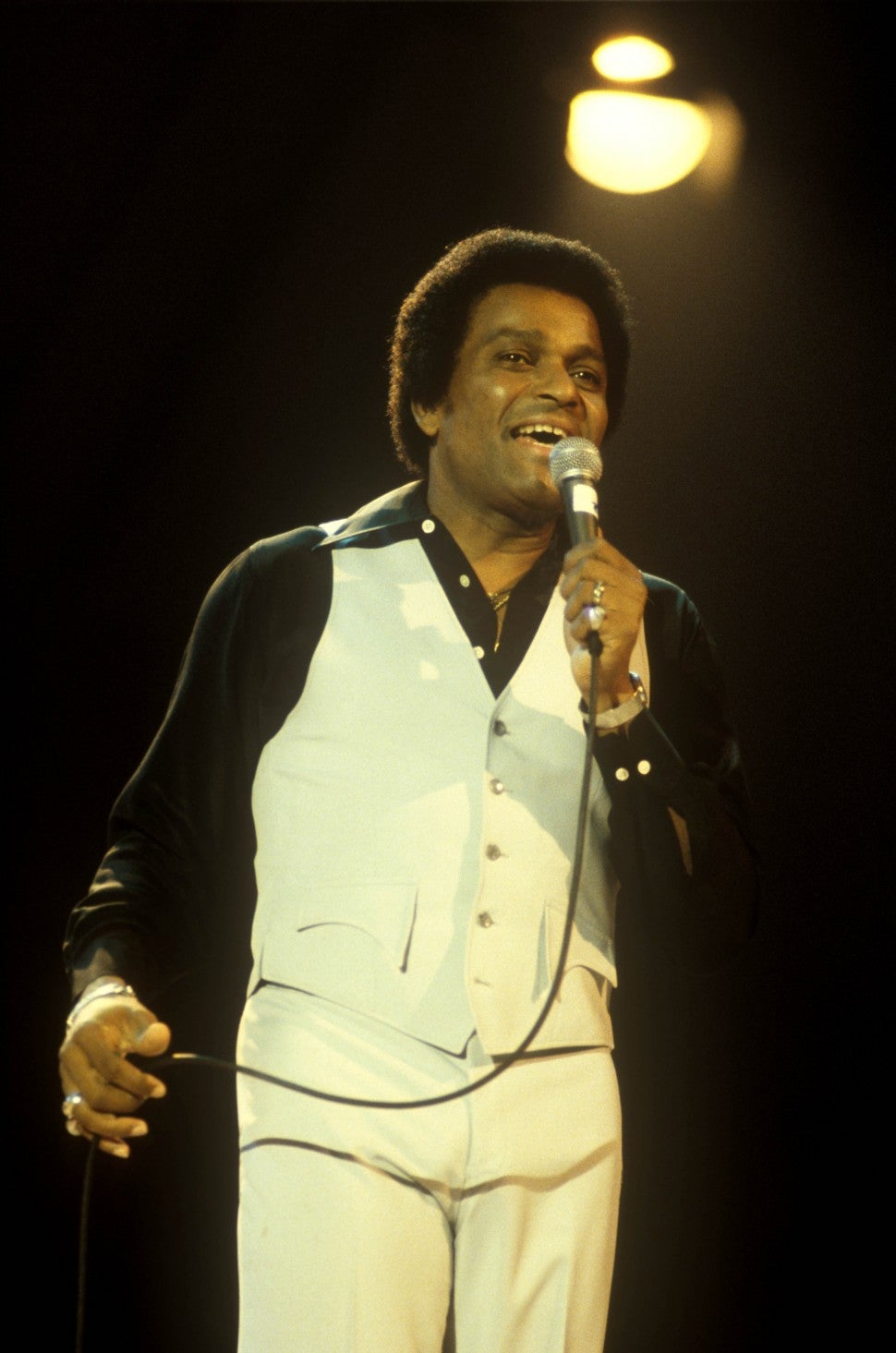
Country music is notoriously segregated, but there have been a few black artists to prevail despite unspoken racial blockades within the genre. Charley Pride, who was arguably the most popular black country singer of his era, became the first black artist to be inducted into the Country Music Hall of Fame. He is also the first black country artist to perform at the Grand Ole Opry, yet he's not alone in trailblazing a path for future generations. DeFord Bailey, a lesser-known country music icon, was the first black performer on the WSM Barn Dance’s Grand Ole Opry (which originally started as a radio program in the 1940s). Bailey was posthumously inducted into the Country Music Hall of Fame in 2005.
RELATED CONTENT:
12 Black Actors, Directors and Comedians Who Made History
10 Powerful Songs That Embody and Support Black Lives Matter Movement
Meghan Markle Is 'Passionate' About Supporting Black Lives Matter



